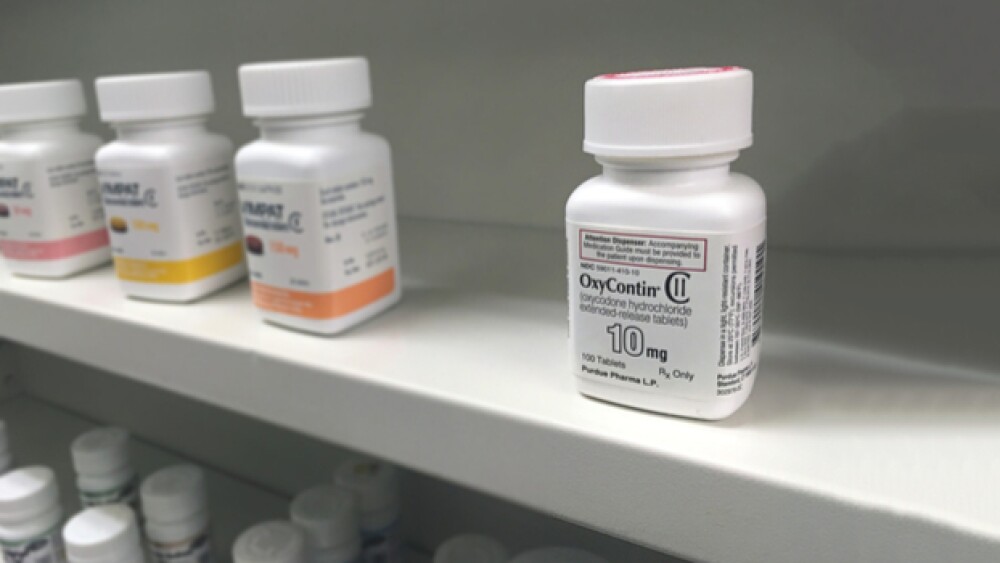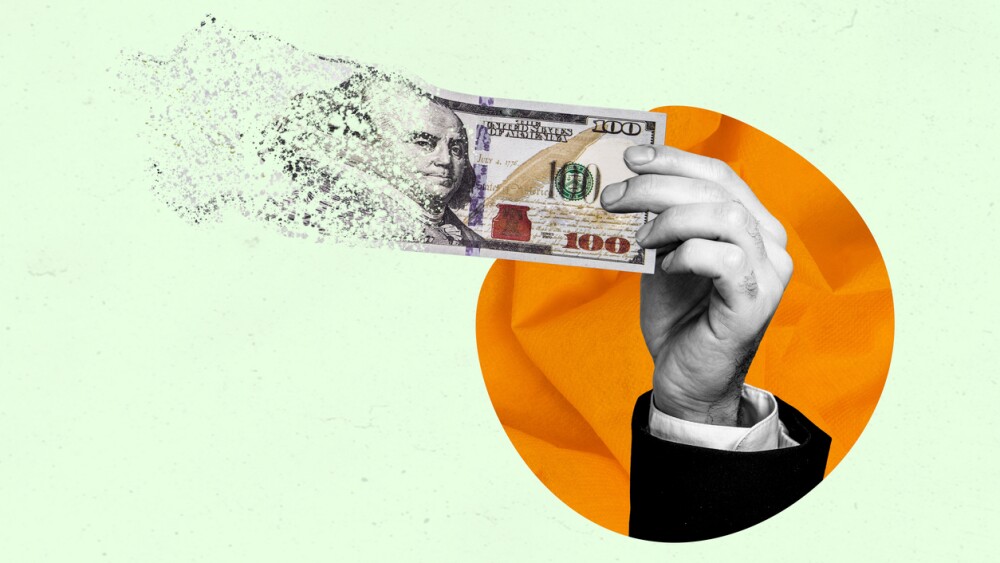Purdue Pharma, best known for being the manufacturer of opioid drug OxyContin, is offering free doses of a treatment for opioid abuse as part of negotiations in more than 1,000 lawsuits.
PureRadiancePhoto / Shutterstock.com
Purdue Pharma, best known for being the manufacturer of opioid drug OxyContin, is offering free doses of a treatment for opioid abuse as part of negotiations in more than 1,000 lawsuits.
Purdue is being sued for allegedly stimulating the U.S. opioid epidemic through deceptive marketing practices. Among other things, the lawsuits accuse Purdue of violating various state consumer protection laws by falsely denying or understating the addiction risk while simultaneously overstating the benefits of the drugs.
According to Bloomberg, as part of the negotiations, Purdue Pharma has offered to give away a new version of buprenorphine, a drug that helps opioid addicts overcome their addiction. The drug’s patent has Richard Sackler, past president of Purdue and son of the company’s co-founder, listed as one of six inventors.
Bloomberg writes, “It’s another sign that opioid makers and drug wholesalers are looking for an exit from litigation over their alleged role in a crisis that kills more than 100 Americans daily that could result in billions of dollars in penalties.”
“I’d have to say this is a pretty clever move,” Richard Ausness, a University of Kentucky law professor told Bloomberg. “Over the last 20 years, Purdue hasn’t shown any real contrition or remorse, so I see this offer of free step-down drugs as a savvy negotiating tactic to limit what they have to pay in any settlement.”
Buprenorphine was approved by the U.S. Food and Drug Administration (FDA) in 2002. Available in tablet and film forms, the patent is held by Rhodes Pharmaceuticals.
In a related story, it turns out that the Sackler family owns Rhodes Pharma, according to a Financial Times report published on September 9. Rhodes Pharma launched in 2007 and is one of the largest makes of off-patent generic opioids. It manufactures several opioid-based drugs that contain oxycodone, hydrocodone and morphine.
On September 7, 2018, the FDA approved Cassipa (buprenorphine and naloxone) sublingual film to treat opioid dependence. This is a new dosage strength, 16mg/4mg of the two drugs. It is manufactured by Teva Pharmaceutical.
Bloomberg notes, “Purdue’s offer adds to its efforts to refashion the company as an advocate for fighting the addiction crisis while fighting back court cases. It’s also helped fund distribution of opioid-overdose antidote naloxone, purchased ads in the press touting its efforts, and pledged $3.4 million to a nonprofit firm developing a cheaper version of naloxone.”
And Purdue isn’t the only company to do so, part of the industry’s response to the federal government’s crackdown on opioid manufactures as the result of the Trump Administration’s mostly public relations-oriented response to the opioid epidemic. Cardinal Health has donated at least $3 million to approximately 70 organizations and McKesson Corp. provided $100 million to a stand-alone nonprofit organization focused on fighting the opioid epidemic.
Legal experts believe these offers aren’t just public relations, however, but a negotiating tactic. Alexandra Lahav, a professor at the University of Connecticut School of Law, told Bloomberg, “If this is part of settlement talks, then it’s not just about goodwill — it’s really saying, ‘I’m sweetening the deal.’ Whatever people are willing to agree to, they can do. The question is, is the judge going to feel if the companies are doing enough in light of exposure?”
The idea that the pharmaceutical companies most responsible for the opioid epidemic are profiting from it by offering treatments, hasn’t been lost on critics. Author Ryan Hampton and activist artist collective Queer Appalachia recently issued a scathing response to the news, stating, “They are profiting off the crisis that they subsidized with their most profitable pill, OxyContin. This is reprehensible and shows a lack of any moral conscience. Maybe they can patent a funeral parlor next. … It is evil to profit from deliberately making people sick, then selling them a ‘cure’ for their illness.”





